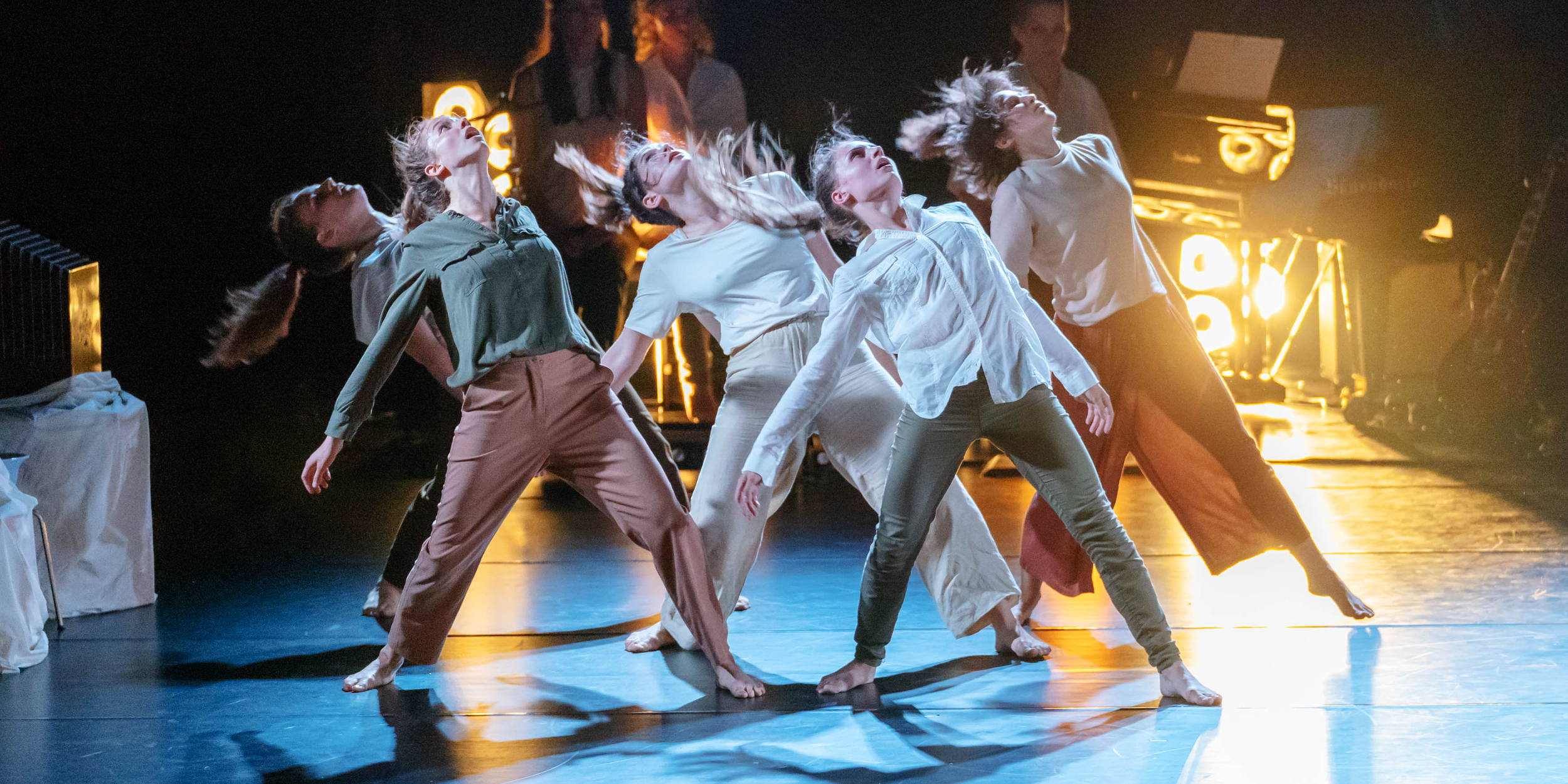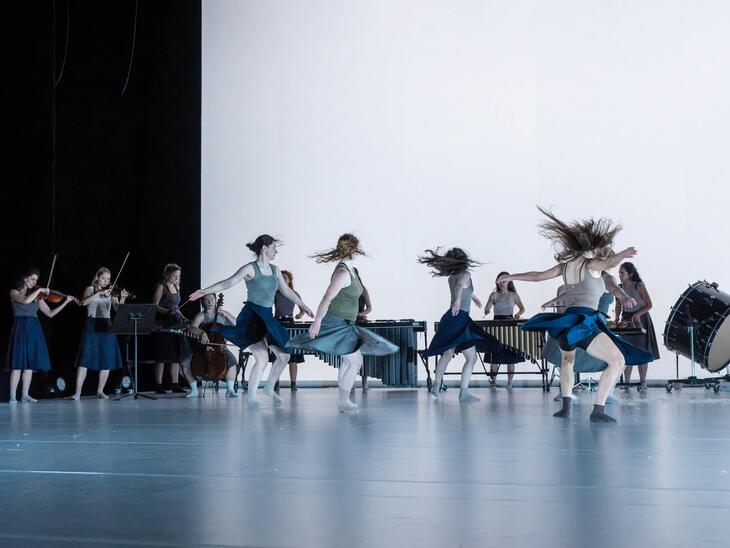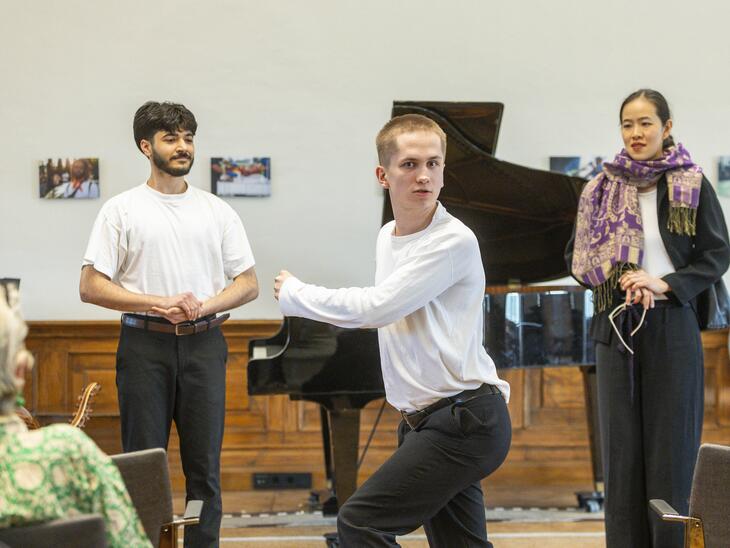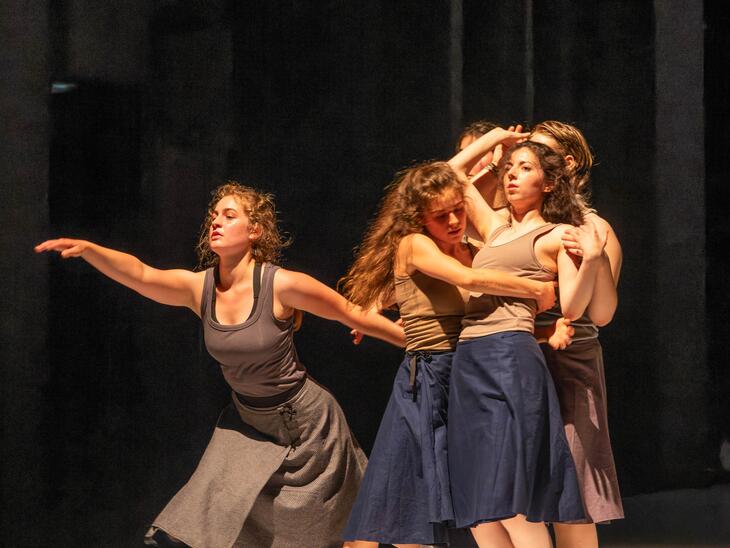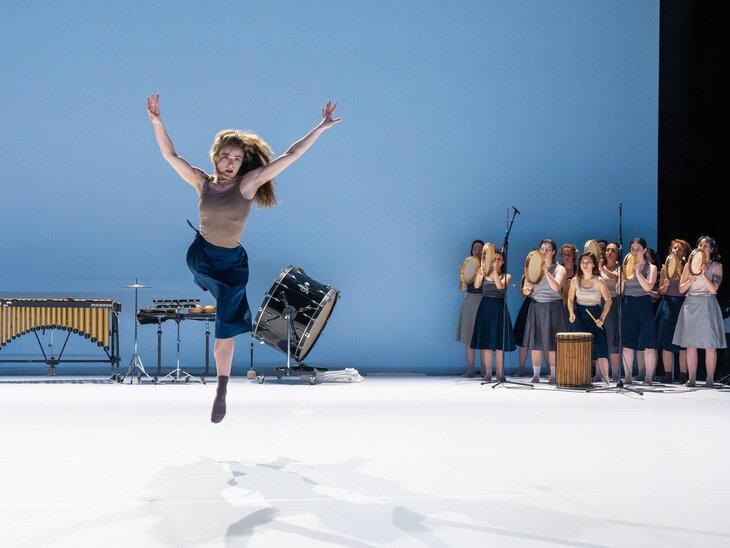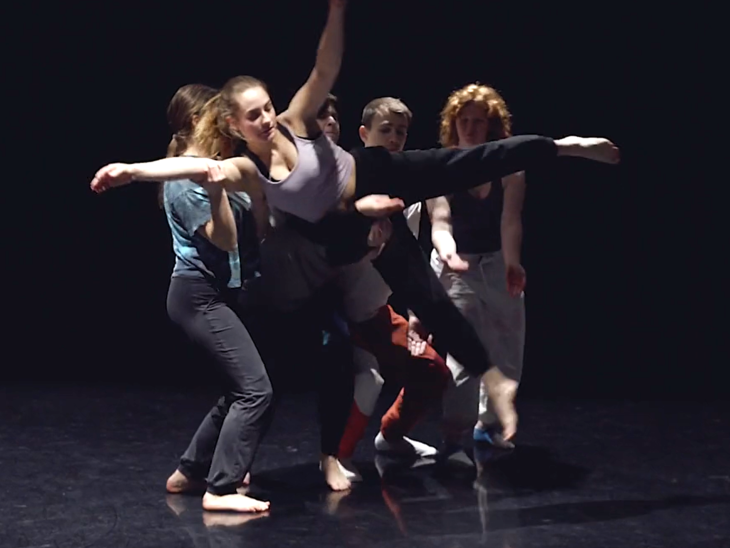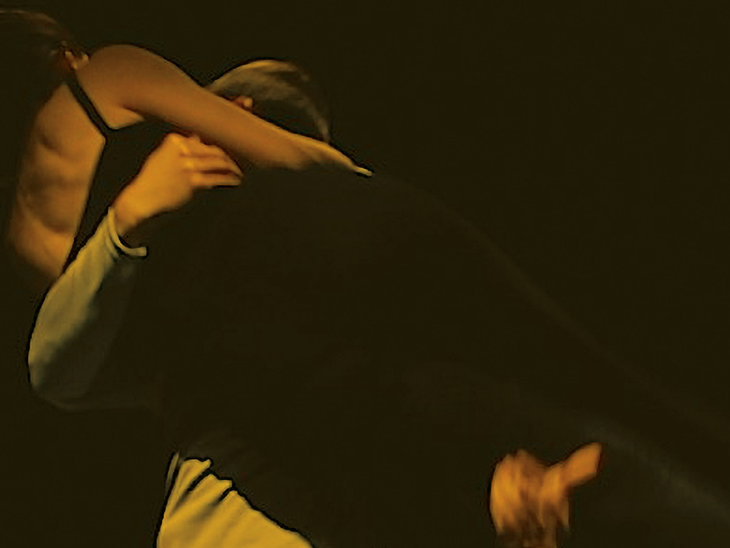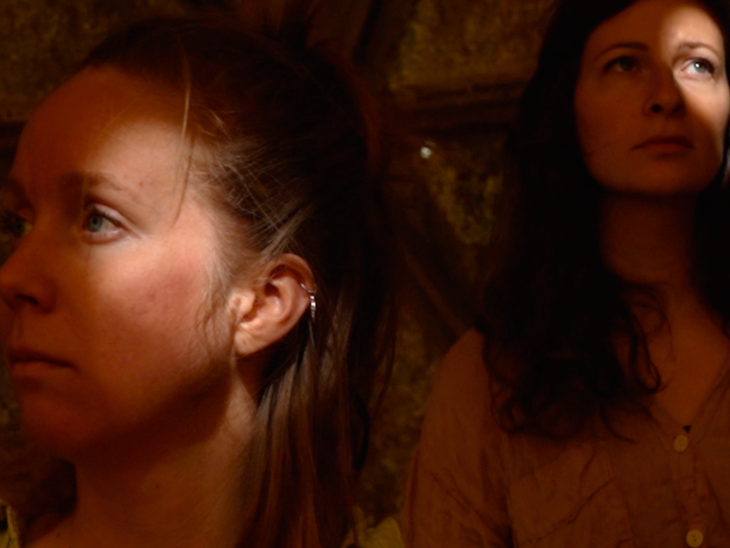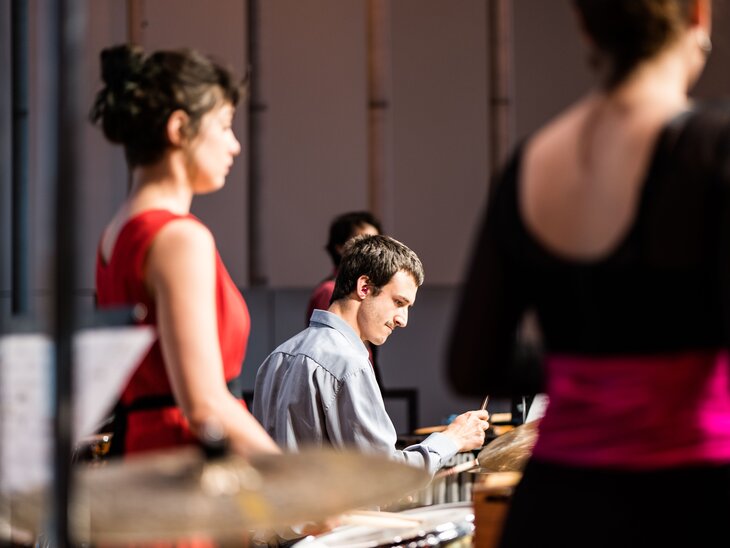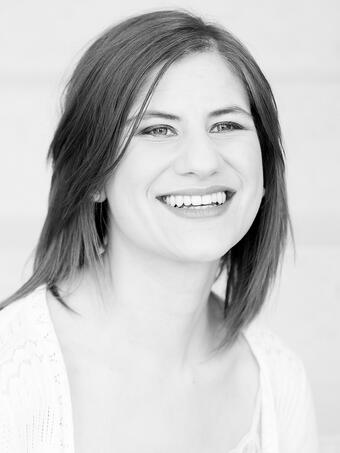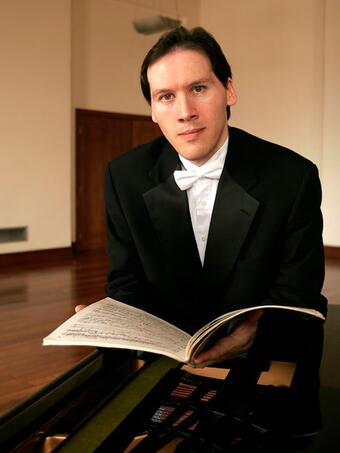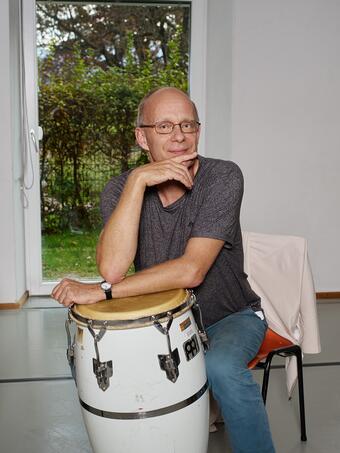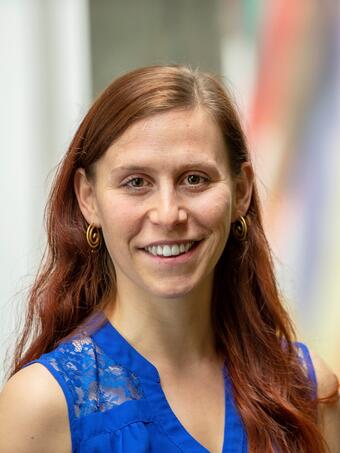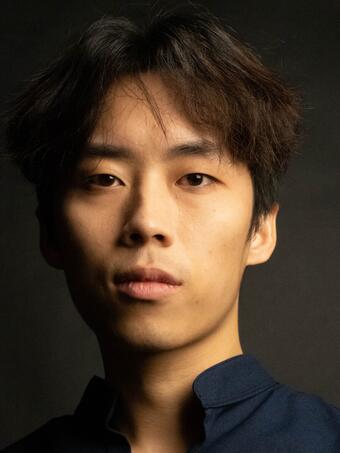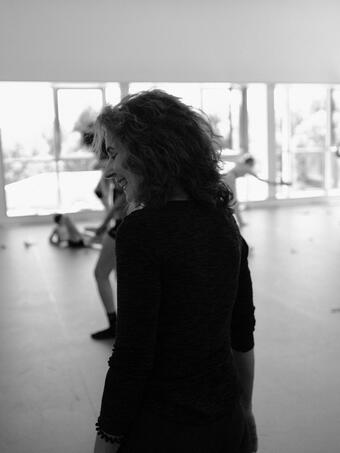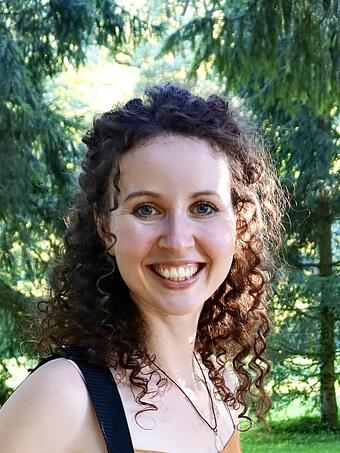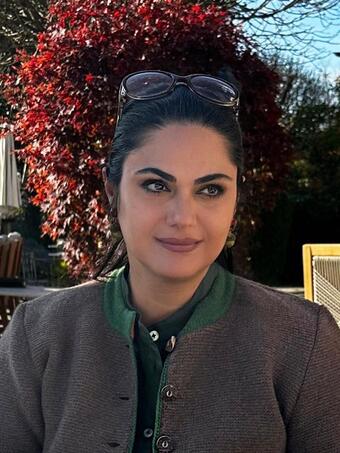The entrance examination consists of the following partial examinations:
A - Pedagogical aptitude (leading a group).
Applicants will work with a group (usually fellow applicants) on a prepared piece of their own choice, possibly something they have composed by themselves, e.g.: Song or canon with or without accompaniment (body percussions, instruments, movements, gestures, dance), traditional dance or excerpt from a choreography, spoken word piece, simple ensemble piece (instrumental, vocal). Three copies of the material used (e.g. sheet music, spoken piece, choreographic sketch, music selection), including information about the source(s), must be brought to the entrance examination.
B - Compulsory subject instrument/voice
The following instruments can be chosen as a main study in the BA programme in Elemental Music & Dance Pedagogy (according to staff availability): Recorder, flute, oboe, clarinet, bassoon, saxophone, trumpet, trombone, horn, bass tuba, percussion instruments, violin, viola, violoncello, double bass, piano, harpsichord, organ, voice, guitar, harp and folk instruments (diatonic harmonica, dulcimer, zither).
Examination requirements for the main subject voice (for examples of appropriate repertoire, see below):
- Three pieces of different periods and characters are to be performed from memory. The pieces to be performed are solo pieces with accompaniment (no choir parts).
- A vocal improvisation task will be given in the examination (e.g. playful vocal realisation of a theme).
- Sight reading
Examination requirements if an instrument is chosen as the main subject (for repertoire examples see below):
- Three pieces of different periods and characters are to be played. Memorisation is not required.
- An improvisation task will be given in the examination, to be performed on the instrument.
- Sight reading
C - Practical Music (general musical and vocal aptitude)
Requirements - general musical aptitude/elemental music making: Students' general musical aptitude will be assessed as they participate in an ensemble class under the direction of a teacher. The class will cover improvising and making music in a group (voice, body percussion and mallet instruments), and fulfilling creative tasks involving a text (will be provided in the course of the groupwork).
Requirements for general musical aptitude/percussion: All applicants (including those whose main subject is percussion instruments) will be assessed in their percussion skills. The assessment will take the form of participation in an ensemble class under the direction of a teacher. This session will include question and answer games, imitation and coordination exercises.
Requirements - general musical aptitude/harmonic instrument: All applicants (including those whose main subject is piano or guitar) will be assessed in their skills on a harmony instrument:
- Piano: The candidate must prepare and perform their own accompaniment to a song, which they will sing themselves (self-accompaniment). A song from the voice aptitude test can be used if desired. In addition, applicants must be prepared to demonstrate basic cadences (I-IV-V-I) in various keys (up to three accidentals) in major and minor, and in all positions.
- Guitar: The candidate must prepare two different accompaniment patterns to the same song, which they will sing themselves (self-accompaniment). The candidate should be able to transpose the song into other key (up to three accidentals). A song from the voice aptitude test can be used if desired.
- Other harmony instrument: In principle, another harmony instrument can also be chosen. The examination requirements are based on the requirements for piano/guitar.
Requirements for practical voice aptitude: All applicants (including those whose main subject is voice) will be assessed on their vocal skills.
- Two short pieces of different character and style are to be sung unaccompanied and from memory. (For pieces with several verses, a maximum of two verses.) One of these should be sung in German and one should be a folk song.
- The candidate will prepare a short text (poetry, prose, etc.) and recite it from memory. The performance should show the ability to use the voice in a creative way to enhance the performance of the text. Duration: approx. 1 to 2 minutes.
D - Dance Practice (general dance aptitude in the group and solo study)
Requirements - dance aptitude in a group: participation in a dance technique class (contemporary), assessement in the group under the guidance of a teacher. Some elements of the assessment include: Guided warm up, realisation of movement material in a fixed position and moving through the room, rhythmic exercises, contact and spatial orientation exercises, variation and interpretation of movement material and improvisation. (Duration approx. 45-60 minutes.)
Requirements - solo study: performance of a prepared, individually designed movement/dance study on a topic of the candidate's choice, e.g. presentation of a movement-exploration or dance movement scene, with movement material to be chosen by the candidate. The study can be designed with or without music and/or include other elements supporting the performance (text, image, object, etc.). (Duration: minimum 3 to maximum 5 minutes.) This will followed by a short discussion on intention and process and candidates may be required to perform a follow-up task related to their performance.
E - Music theory and aural skills
Examination of basic knowledge of general music theory (written and oral) including an aural test.
Requirements in the written part of the examination (approx. 60 minutes):
- Notation of melodies from memory
- Continuation of given melodies
- Composing a short melody to a given text
- Noting down one-part and easy two-part melodic dictations as well as rhythmic dictations
- Forming all triads and seventh chords including inversions (especially dominant-seventh chords in root position and 3rd inversion)
- Recognising and notating simple figured basses as well as harmony functions and harmony steps in a musical context
Requirements in the oral part of the examination (5-10 minutes):
- Sight-singing
- Recognising and naming intervals and simple chord progressions
- Singing triads (in inversions) and dominant seventh chords (in root position only)
- Identification of harmonic steps and dissonant neighbour notes
- Performing an extended cadence in major and minor in two different keys (on piano or guitar)
You can find an exam example as well as further help for preparation HERE.
F - German language skills
- Required language level: at least B2 (Common European Framework of Reference CEFR 2001)
- Information on the German examination as well as the recognised certificates can be found HERE
After passing subtest A, candidates will be admitted to partial examinations B to F (possibly in a different order).
The repetition of composite parts of the audition in case of failure is not permitted; the audition can only be repeated in its entirety and only in the next academic year. The audition can be repeated an unlimited number of times.

